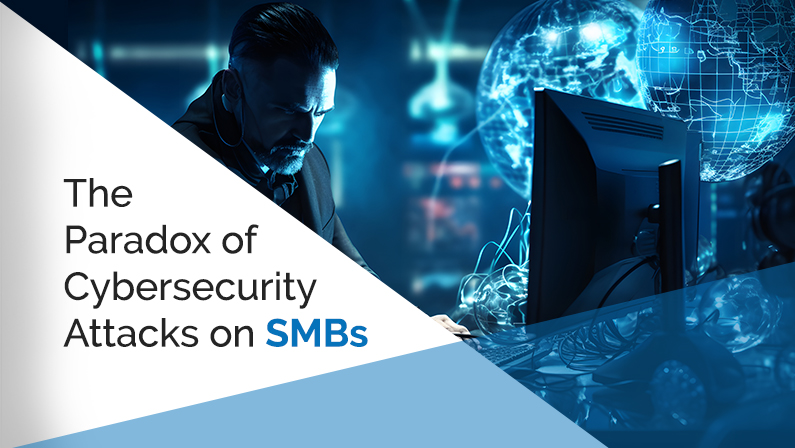Lack of Awareness:
Many SMB owners are unaware of the current threat landscape. They might not keep up with news about cybersecurity and might be uninformed about the risks and the frequency of attacks on businesses of their size.
Misconception about Targets:
Some believe that only large corporations are the targets of cyberattacks because they possess more valuable data or larger financial assets. This misconception can lead SMBs to think they’re “too small” to be noticed or targeted.
Budgetary Constraints:
SMBs often operate with tighter budgets. Allocating funds for cybersecurity might seem less pressing than other immediate operational costs.
Lack of Technical Expertise: SMBs might not have in-house IT expertise to understand and address the cybersecurity risks. Outsourcing can be perceived as expensive, and the lack of expertise can lead to downplaying the threat.
Over-reliance on Basic Measures:
Some SMBs believe that basic measures like firewalls or off-the-shelf antivirus software are sufficient. While these are essential first steps, they are often not enough to defend against more sophisticated attacks.
False Sense of Security:
Some business owners might believe that since they haven’t been attacked yet, they are either not at risk or whatever measures they have are adequate.
Underestimating the Impact:
SMBs might not realize the full impact a breach could have on their business. Beyond data theft, cyberattacks can lead to operational downtime, loss of customer trust, legal liabilities, and regulatory fines.
Complexity of Cybersecurity:
The evolving nature of cyber threats can be overwhelming. Some SMBs might feel that they can’t keep up with the ever-changing threats and technologies and thus might adopt a defeatist attitude.
Prioritizing Operations:
For many SMBs, the primary focus is on keeping the business running, getting new clients, and maintaining cash flow. Cybersecurity might be viewed as a non-essential, secondary concern.
Belief in Obscurity:
Some SMBs believe that their obscurity or lesser-known status will naturally protect them. They assume cybercriminals won’t find them amidst the vast number of businesses online.
However, it’s essential to understand that cybercriminals often target SMBs precisely because they expect weaker security postures. Automated attacks can scan and compromise thousands of vulnerable systems, irrespective of the size of the business. Given the potential consequences of a breach, SMBs must prioritize cybersecurity as part of their risk management strategy.





